QuestionMr. Meyer, I was wondering if you would be able to give me a bit of insight/advice regarding some bahavior and color change taking place with our female Netherland Dwarf.
We have had her for 14 months, and around the one year mark, her behavior started to change. She went from being friendly to getting quite mean. Her behavior has intensified as the time has went on. We have taken her to a vet thinking that perhaps she was injured or ill, but she was given a clean bill of health. The vet didn't expound on her "personality change" other than to say that is common to her breed to have a mean streak; he was only focusing on her physical well being, and assured us it had nothing to do with her health.
Is it common for a Netherland Dwarf to change so drastically. She is litter trained, and we have her house in a safe area, where she can come and go as she pleases (we have a large area sectioned off that her house is inside of, so she has plenty of room to play outside her cage, has toys, and digging area, etc). She used to love for us to sit in there with her and play, but now even reaching for her food and water to give her fresh hay, pellets, and water runs the risk of being bitten. She turns her back to us, snorts, scratches, bites, and this may sound odd, but she even charges at us. Nothing has really changed in our home life, other than her age. Is there something that we can do to modify her behavior? I cannot imagine her having a life of solitude -- but she seems to want to be left alone, which is such a change, because prior to hitting the one year old mark, she would come over and sit on our laps (on her own accord), nudge our hand when she wanted to be pet more, etc. Now it is as though we have a different rabbit altogether.
Also (and I assume unrelated) I have noticed that her black fur is turning brown in spots, which I found a bit peculiar. Again, we addressed this with the vet who said she is healthy, that is what matters. I agree it is what matters, but I am curious as to why a silver marten would start to turn brown, and not all over -- it is mainly just on both sides, in little sections, toward the front. My husband said that perhaps she is not a pure silver marten like we were told. Could that be? I would have thought if that was so we'd have noticed a color change sooner, but of course I am not sure, so I thought I would ask :)
I apologize for the lengthy question -- and would like to thank you for any information/advice that you can offer.
AnswerHi,
'the change' you have noticed is her becoming a sexually mature female rabbit. Females guard their territory and become defensive at hands reaching in the cage when they are also in the cage. It's a hormonally-driven behavior. And very common, actually - it's one of the ways people know they are sexually mature.
The solution is to find a good rabbit vet and get her spayed. Not all vets are good rabbit vets. Given your vet didn't mention spaying because she is now sexually mature, given her behavior, I'd probably look around your area for a good rabbit vet. Start here:
www.rabbit.org/vets/vets.html
and find a House Rabbit Society-recommended vet near you. If you aren't in the US they have other country listings in links on this page.
It will take 4-6 weeks after her spay for her hormone levels to stabilize at their new lower levels, but you will probably notice positive changes sooner than this. She will need post op antibiotics (baytril, normally) and pain meds (metacam, normally) for 3-5 days after surgery. If the vet won't given them to you, get another vet - pain management is critical in rabbits so that they feel good enough to move around and keep eating.
Don't fast her before surgery. She should not be discharged back to you until it's verified she's eating and drinking again. Bring her regular foods and a special treat she likes so they can put this next to her in recovery to encourage her to eat.
For 1 week or more they will not want her to run hard or jump a lot. You may need to keep her caged for the first week back if she is very energetic.
Spaying her doubles her lifespan. Most unspayed females die by 5 or 6 from uterine cancer. Spayed gals can live a normal 10-12 years as an indoor house rabbit. So her behavior will improve because her personality will be able to overcome hormones, and she'll have a good long life with you.
Lee

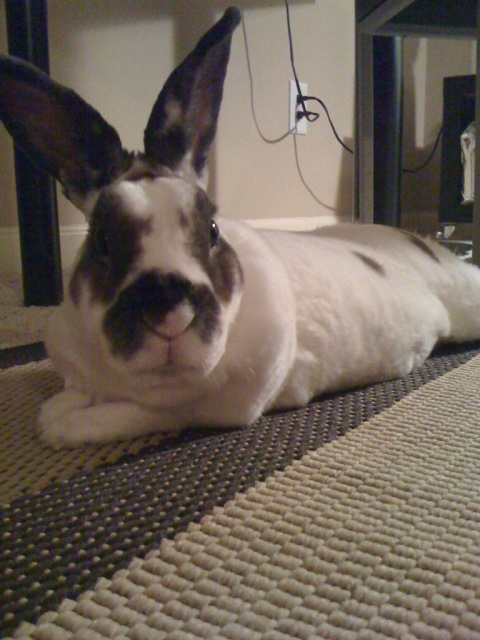 excessive drool and teeth are fine
Question
bunbun
I have a mini rex approx. 5yrs.
excessive drool and teeth are fine
Question
bunbun
I have a mini rex approx. 5yrs.
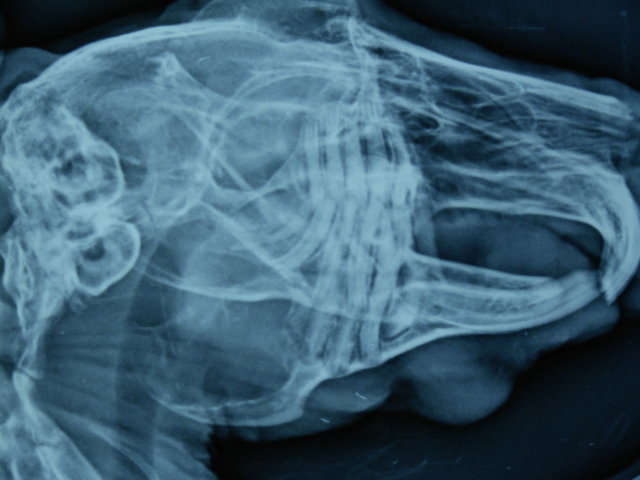 bunny in Mumbai, India needs your help! - have vet but inexperienced!
QuestionQUESTION: Snowy the bunny is a 4 year old male
bunny in Mumbai, India needs your help! - have vet but inexperienced!
QuestionQUESTION: Snowy the bunny is a 4 year old male
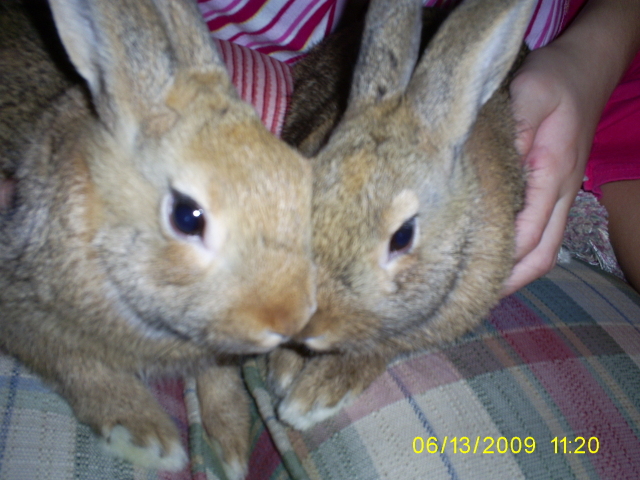 aggressive pregnant doe
QuestionQUESTION: Our doe has always been loving.
aggressive pregnant doe
QuestionQUESTION: Our doe has always been loving.
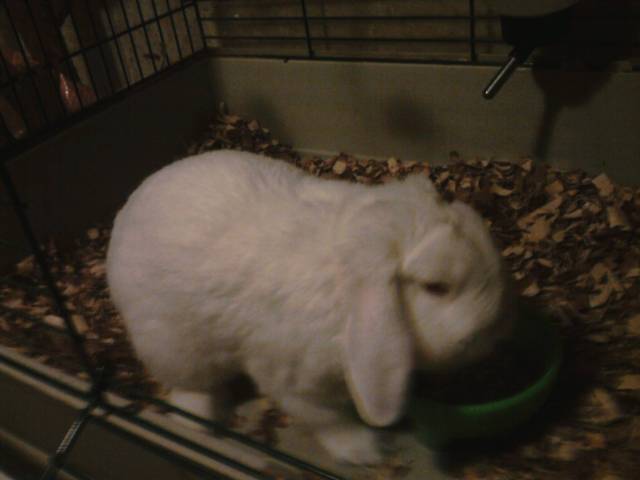 What kind of rabbit do I have?
QuestionQUESTION: I was given a rabbit for a classroom
What kind of rabbit do I have?
QuestionQUESTION: I was given a rabbit for a classroom
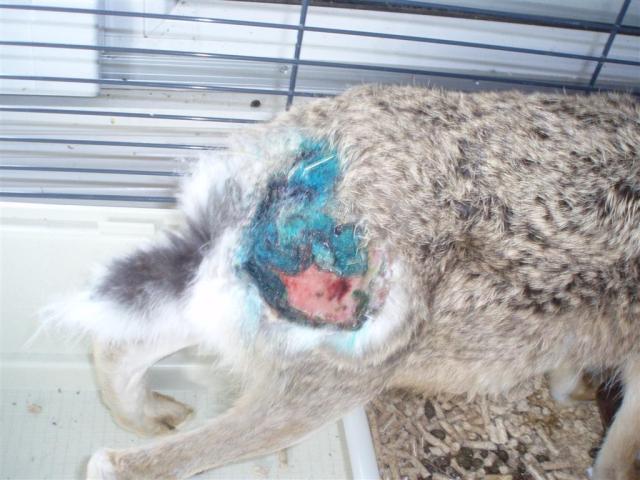 European brown hare syndom virus - Rabbit and hare shelter from Croatia
QuestionInjury
QUESTION: Hello Dana, please answ
European brown hare syndom virus - Rabbit and hare shelter from Croatia
QuestionInjury
QUESTION: Hello Dana, please answ